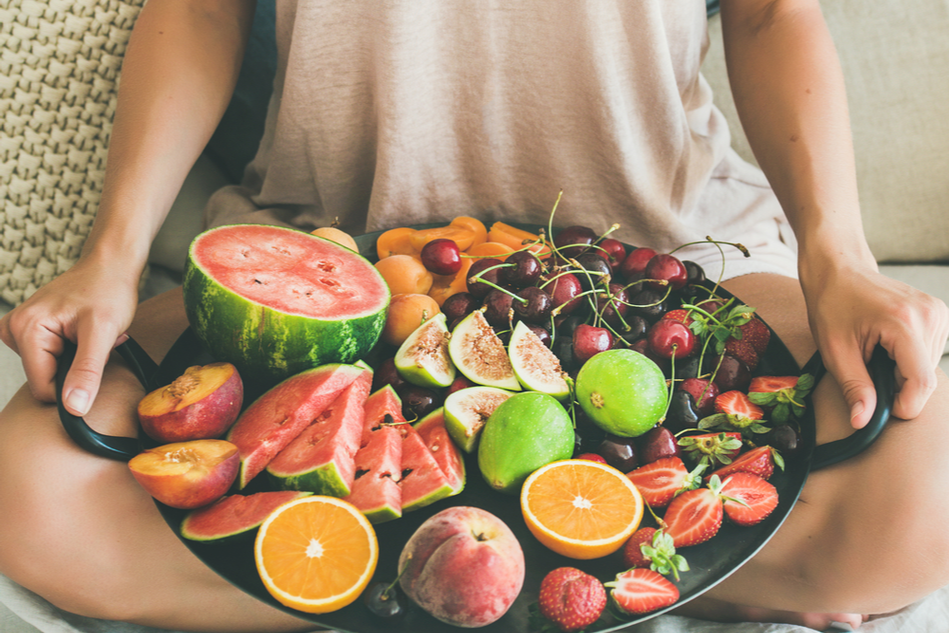As food and grocery delivery apps rise in popularity, it can become too convenient to eat take-out meals and processed snacks that get sent straight to your doorstep. If you’re not careful, this kind of diet could eventually lead to a serious vitamin deficiency.
Here are eight tell-tale signs of vitamin deficiency that will tell you if you need to get back on track towards striking the right balance of nutrients.
Brittle nails and hair
There could be many reasons behind brittle nails and hair, but one of the major factors is a decreased level of biotin, also known as vitamin B7.
Brittle nails and thinning or split hair can point to a lack of B7, along with other signs such as chronic fatigue, muscle pain and cramps, and tingling in the extremities. Those with a higher risk of vitamin B7 deficiency include heavy smokers, drinkers, and pregnant individuals.
To boost your B7 levels, opt for egg yolks, fish, meats, dairy, seeds, broccoli, sweet potatoes, bananas, and whole grains.
Hair loss
If you notice that your hair is falling out, this could indicate a number of nutrient deficiencies on top of vitamin B7. These could include iron, zinc, linoleum acid, and niacin (B3).
If you have too little iron, which is involved in DNA synthesis, especially in hair follicles, then your hair can stop growing or fall out. Zinc functions with protein synthesis and cell division, both of which are required for hair growth.
Eating meat, fish, eggs, beans, and dark leafy vegetables could help increase your intake of zinc, iron, biotin, and niacin.
Dandruff or patchy scalp
Dry, itchy, flaking skin on your scalp might be a sign of low zinc or niacin levels, and possibly low riboflavin (B2) and pyridoxine (B6). To up your intake of these nutrients, eat whole grains, poultry, meat, fish, eggs, dairy, or starchy veggies.
Restless leg syndrome
Restless leg syndrome (RLS) is a condition that gives a person an uncontrollable urge to move their legs to ease an unpleasant feeling or uncomfortable sensation stemming from a nerve issue. RLS affects almost 10 percent of Americans, with women being twice as likely to experience it than men.
While more studies are needed, so far evidence shows a potential link between RLS and low iron levels. To naturally increase iron levels, eat meat, poultry, fish, beans, dark green leafy vegetables, nuts, seeds, and grains. Try to combine these foods with vitamin C-rich foods to increase your body’s iron absorption.
Mouth lesions
Iron deficiency and/or low levels of B vitamins are also linked to the presence of canker sores and other mouth ulcers. In one study, 28 percent of patients with mouth sores had B1, B2, or B6 deficiencies.
Boost your levels of iron and B vitamins by filling your diet with meat, poultry, fish, beans, nuts, seeds, and whole grains. Starchy vegetables and eggs will also boost your B vitamin intake.
Bleeding gums
To keep gums healthy, it’s imperative to brush and floss regularly. Bleeding gums, however, can also be caused by low levels of vitamin C.
Our bodies don’t make our own vitamin C, which means that the only way to keep vitamin C levels up is through what we consume. Other indicators of low vitamin C levels include nosebleeds, dry skin, and slow healing wounds.
To ensure you’re getting enough vitamin C, eat at least two servings of fruit and three portions of veggies every day.
Poor night vision
If you’re having more trouble than usual seeing at night, then you’re likely deficient in vitamin A. Vitamin A helps produce rhodopsin, a pigment in the retinas that helps us see at night. Chronic night blindness can eventually lead to cornea damage and vision loss at all times, however, replenishing your vitamin A levels can help get rid of these symptoms.
Make sure to eat a lot of yellow and orange-colored veggies like carrots and sweet potatoes. Organ meats, dairy, eggs, fish, and dark leafy vegetables can also boost vitamin A levels.
Anemia
Fatigue, shortness of breath, dizziness, irregular heartbeat, muscle weakness, pale skin, and numbness in the extremities are all symptoms of anemia. Anemia is a result of unhealthy red blood cells that are too large and don’t efficiently carry oxygen. To keep red blood cells healthy, vitamin B12 and folate are needed, both of which can be added to your diet through supplements.












